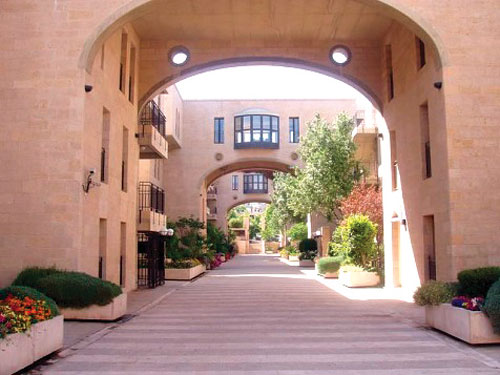.jpg)
.jpg)
In early December, the Knesset Finance Committee approved a new law to double the property taxes on “ghost apartments” or secondary residences that sit vacant for at least nine months a year. This law was enacted on a two-year temporary basis, to determine its effect on the housing market. The number of ghost apartments in Jerusalem varies greatly based on who you ask, with estimates ranging from 3,400 to 10,000 units.
Ghost apartments have understandably generated resentment from local residents who claim that these empty units reduce the country’s already limited housing supply. The goal of this new tax is to encourage owners of vacant units to either rent out or sell their apartments. As expected, the politicians who sponsored the bill lauded its passage, claiming that it will be a helpful measure to resolve the housing crisis. Anticipating that some absentee homeowners will rent out their unoccupied homes, the rental supply will increase and rental rates will fall, allowing young families to move into neighborhoods that would otherwise be too cost prohibitive.
Immediately after these new measures were approved, a number of real estate professionals asserted that these new laws will have an insignificant impact on the real estate market. Ohad Danus, chairman of the Israel Real Estate Appraisers Association, opined in Globes, Israel’s daily business paper, “Besides the fact that it will be very difficult to enforce the regulations, they will not be the least bit effective in lowering home prices. It is obvious that these ‘ghost apartments’ are not standard apartments, but are generally luxury apartments, in very upscale neighborhoods. The apartment owners are wealthy people, who can also live with having the lights on nonstop in their apartments, in order to pass the electricity quota set by the Finance Committee. This is another populist measure that will make no difference whatsoever to young couples or the middle class.”
Thankfully the Israeli population is growing; unfortunately there are not enough apartments being developed to address the housing need. The underlying reason for this shortage can be traced to Minhal’s (Israel Land Authority) historically slow pace of selling government land for development. Only when the government implements faster methods of rezoning and selling land will the tremendous pent-up demand be mitigated. Until then, punitive measures such as double taxing unoccupied apartments will be mere window dressing, allowing politicians to proclaim that they are addressing the housing crisis.
I do not believe that this law will generate any meaningful change to the status quo because the vast majority of buyers of these relatively expensive homes would rather part with an extra few thousand dollars a year than to sell or rent out their apartments. In addition, most apartment owners who visit Israel sporadically will not rent out their homes when they are overseas, as very few tenants would lease an apartment on condition that they move out every time the landlord visits. However, I do expect that numerous overseas owners will consider renting out their apartments on a short-term basis between visits in order to be in compliance with this new law.
Gedaliah Borvick is the founder of My Israel Home (www.myisraelhome.com), a real estate agency focused on helping people from abroad buy and sell homes in Israel. To sign up for his monthly market updates, contact him at gborvick_gmail.com.
By Gedaliah Borvick










